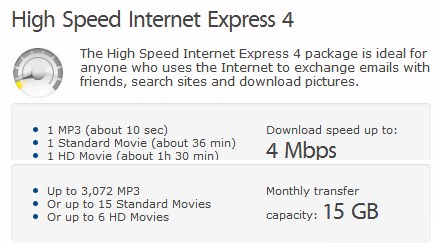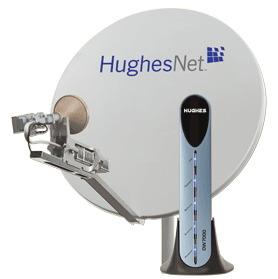
Phillip "An Ex-Frontier Customer" Dampier
The other week while sitting in the dentist’s office waiting for my wallet to be drilled, I overheard a conversation at the reception desk over the latest effort by Frontier Communications to shoot itself in the proverbial foot.
“I decided to get rid of my phone line the other day and when I called Frontier to disconnect, I was told I would owe them more than $150 in disconnection fees for a contract I never knew I had with them,” opened the conversation.
“That happened to my sister as well, and she couldn’t believe it because nobody ever told her she was on a contract,” came the reply.
“I never knew I was either, and I told the representative they needed to show me where I signed up for anything like that or else I’m not paying it,” insisted the latest victim of Frontier’s phantom service contracts.
Within a minute or two, all had decided they were done doing business with the phone company that got its start more than 100 years ago as the well-regarded Rochester Telephone Corporation. In 2012, there was no turning back after $150 “disconnect” penalties and other insults. They were intent on being rid of Frontier once and for all.
With customer unfriendly policies like that, it comes as no surprise Frontier has been losing customers in the Rochester market for years, mostly to cell phone providers or Time Warner Cable — the latter which delivers more value and far superior broadband speed in western New York communities not served by Verizon FiOS.

Surprise... you're on a contract with a $150 cancellation penalty.
Twenty years ago, Rochester Telephone delivered excellent value, charging about half what then-NYNEX customers in Buffalo and Syracuse paid for telephone service. But as Frontier has increasingly disengaged from being an aggressive contender for telecommunications services in Rochester, people in this region of one million noticed, especially when Verizon’s fiber to the home service arrived in Buffalo, Syracuse, Albany, and beyond.
What did Frontier offer? Not much. Frontier’s local general manager Ann Burr, who used to be in charge at Time Warner Cable locally, told local media Rochester didn’t need faster broadband speeds. That’s a fitting argument for a company that doesn’t deliver them and believes 3Mbps broadband is plenty fast enough. If you don’t like it, feel free to leave, so long as you aren’t trapped with that long-term service contract you never knew you had. (The New York Attorney General’s office has already spanked Frontier once for the practice, forcing them to issue refunds, and judging from last week’s conversation, it appears the problem has not abated.)
The fact is, Frontier offers little compelling to the landline customers they have left.
Rochester’s experience with Frontier seems apropos when contemplating the phone company’s latest quarterly results, which one analyst called “ugly.” Having listened to at least a dozen of Frontier’s quarterly conference calls with investors over the past three years, there seems to be no shortage of promises of better days to come. Frontier is among the few companies I have heard call customer losses of 5-11% every quarter “an improvement.”
As one investor put it, the management at Frontier should win an Academy Award for feigned optimism.
This week, the company announced first-quarter earnings fell 51% thanks to lower revenue earned from the dwindling number of residential and business customers. But better days are ahead, really.

Road to nowhere?
Frontier has spent the last year treating their “system conversion” for ex-Verizon territories as the telecom equivalent of the Holy Grail. Once achieved, the company can do anything. The reorganization underway internally at the company is supposed to improve its lackluster customer service, generate more marketing opportunities, save the company money, and open the door to a new chapter of a unified Frontier family, with ex-Verizon and always-Frontier employees coming together to do things “the Frontier way.”
How much longer investors will stick around waiting for the promised land remains an open question. The stock has already achieved a 52-week low, and if the company cuts its dividend — the primary point of attraction for investors — it will drop much lower.
Frontier’s management decisions have effectively left the company between a rock (Wall Street) and a hard place (its dwindling customers). Much of the company’s success is predicated on rural broadband/landline service, where the company expects to face little competition. But Verizon, the company that sold them much of their inherited network, has a little surprise for them. After selling off the “junk” (a deteriorating copper landline network they no longer care much about), the company’s wireless division is coming back to town to poach Frontier’s customers.
Verizon’s grand plan is to pitch two products:
- Home Phone Connect: Verizon’s landline replacement works with the customer’s home phones over Verizon Wireless’ network. Customers can share minutes on an existing Verizon Wireless plan for $9.99 a month or get unlimited calling for $19.99 a month. It comes with most popular calling features included.
- Verizon HomeFusion Broadband: Verizon Wireless has excess capacity in rural areas, especially on 4G LTE-equipped towers, so why not put it to use? While commanding a premium at $60 a month for just 10GB of usage, customers who value speed over money may tolerate that diamond price. If Verizon finds a way to relax that usage limit and lower prices, it could present a real competitive threat to phone companies delivering lower end DSL service.
[flv width=”480″ height=”290″]http://www.phillipdampier.com/video/Home Phone Connect – Home Phone Transfer Verizon Wireless.flv[/flv]
Verizon Wireless introduces Home Phone Connect, a product designed to tell landline companies like Frontier to take a hike. (2 minutes)
While Verizon isn’t likely to immediately grab major market share with either product, it foreshadows an intent to leverage their rural wireless network to remain a player, even in places where they have abandoned selling landline service.
How to Stop the Erosion

Turning things around? Frontier contemplates licensing U-verse from AT&T
Even in a barely-competitive marketplace, companies must invest to keep up. But that investment annoys Wall Street, which can depress the stock (and the all-important dividend). But improved service retains customers (and may even win a few ex-customers back). So news that Frontier was considering licensing U-verse technology to upgrade their major markets is a logical first step to stop the bleeding. Frontier is irrelevant delivering broadband at speeds of 3Mbps at out the door prices that meet or exceed what the much-faster cable competition charges. U-verse would allow Frontier to deliver faster broadband (up to 24Mbps is plenty fast for a lot of consumers), build its own IPTV offering instead of relying on satellite dish reseller agreements, and maintain landline customers, assuming the company prices its bundle correctly.
While we are big proponents of fiber-to-the-home service, it is clear Frontier will never spend the money to deliver it, even to their largest service areas. They will prefer the cheaper route of fiber to the neighborhood, relying on existing copper infrastructure to connect individual homes to the service. It represents a reasonable first step.
Frontier also must continue aggressive investments in their broadband network in more rural areas. Some of the company’s regional backbones remain woefully congested, and the company just doesn’t deliver the speeds it markets on its website in too many areas.

High speed should really mean "high speed"
Jameson, a Stop the Cap! reader, is a good example. He signed up for “Frontier Max DSL” which claims it can deliver up to 6Mbps in his part of east-central Indiana. He ended up with 1.6Mbps instead, in part of because Frontier’s records were inaccurate.
I called Frontier tech support after reading some stuff on Stop the Cap! and another site, learning that since I live under 5000 feet from the DSL termination point (the Frontier building down the road) that I shouldn’t have any problems getting their highest speeds. I got lucky and got a customer support agent who understood my problem, and a tech support guy who genuinely seemed concerned about my issue. The tech guy checked Frontier’s records and I was labeled as being 30,000 feet from the building, but I’m really only around 4200 feet away, and my speeds were provisioned at 1.6mbps down and around 450kbps up. He put in a support ticket to have my speeds automatically raised up to the max I’m paying for.
Jameson ended up with around 7Mbps — a little better than the advertised speed, but only because he thought to ask and reached the right people at Frontier to follow through.
Some of our readers in West Virginia are not so lucky, having the mediocre speeds they fought to receive reduced further when a technician suddenly remotely adjusts speed provisioning on customer equipment to reduce their maximum broadband speed.
Frontier’s DSL problems don’t just exist in rural areas. We experienced it first-hand in 2009 when the company advertised up to 10Mbps speeds in Rochester, and delivered 3.1Mbps to us instead.
Consumer Reports documents this is not an isolated problem, with only two-thirds of Frontier customers getting the broadband speeds they pay to receive. If and when a competitor does better, Frontier loses another customer.
Finally, Frontier must improve its customer service. The company is notorious for giving inconsistent answers to customer questions, doesn’t always follow through on commitments, and maintains far too many “gotcha” terms and conditions on contracts that leave customers exposed to unjustified early termination fees.
[flv width=”640″ height=”380″]http://www.phillipdampier.com/video/CNET Verizon HomeFusion Broadband May 2012.flv[/flv]
CNET shows off the equipment used with Verizon’s new HomeFusion wireless broadband service. (2 minutes)
 Cogeco Cable is mailing flyers to residents in eastern Canada promoting the company’s ‘value’ option:
Cogeco Cable is mailing flyers to residents in eastern Canada promoting the company’s ‘value’ option:

 Subscribe
Subscribe










